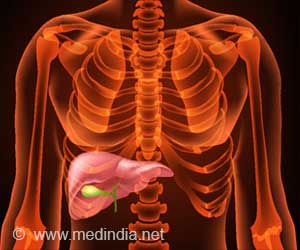- Identifying symptoms such as hearing impairment, mouth ulcers, and nasal blocks can lead to early detection and management of ENT issues
- Persistent nosebleeds and CSF leakage are signs of potentially serious health concerns, requiring immediate medical attention
- Voice changes, especially persistent hoarseness or a drastic change in pitch, could indicate several ENT disorders and should be evaluated by an ENT specialist
Early Detection of Hearing Impairment in Children
Hearing impairment is a crucial ENT concern that, when identified early, can be managed effectively to ensure a child's normal cognitive and social development (1✔ ✔Trusted SourceChildren with hearing impairment and early cochlear implant: A pragmatic assessment
Go to source). Parents should watch out for signs such as a lack of response to loud noises, not reacting to voices, or delayed speech development. In such cases, immediate consultation with an audiologist or an ENT specialist is recommended to conduct proper hearing tests and explore potential solutions such as hearing aids, therapies, or surgeries.
Persistent Mouth and Tongue Ulcers
Mouth ulcers, especially those persisting for more than two weeks, can indicate serious conditions ranging from infections, oral cancer, or autoimmune diseases like Behcet's syndrome or lupus (2✔ ✔Trusted SourceAutoimmune Diseases and Their Manifestations on Oral Cavity: Diagnosis and Clinical Management
Go to source). Accompanying symptoms might include pain, difficulty swallowing, or a burning sensation in the mouth. A thorough evaluation by an ENT specialist can help identify the underlying issue and initiate appropriate treatment.
Nasal Obstructions and Adenoid Concerns
Persistent nasal congestion, difficulty breathing, or chronic mouth-breathing in children can point to adenoid issues (3✔ ✔Trusted SourceComputed tomographic evaluation of mouth breathers among paediatric patients
Go to source). Adenoids are small patches of tissue located in the back of the nasal cavity, and when they become inflamed or enlarged, they can lead to chronic ENT issues. Timely diagnosis and treatment can alleviate discomfort and mitigate potential complications like sleep apnea and recurrent ear infections.
Recurrence of Nosebleeds
While occasional nosebleeds might be relatively common and benign, persistent or heavy nosebleeds can be a sign of an underlying ENT issue such as nasal polyps, a deviated septum, or even a rare condition called hereditary hemorrhagic telangiectasia (4✔ ✔Trusted SourceEpistaxis
Go to source). Recurrent nosebleeds warrant a comprehensive examination to rule out serious causes and implement appropriate management strategies.
CSF Leakage: Uncommon ENT Problem
Cerebrospinal fluid (CSF) leakage represents a rare but critical ENT-related issue. It involves the leaking of fluid that surrounds the brain and spinal cord, usually following a head injury or a surgical procedure. Symptoms include persistent, watery nasal discharge, headaches, and vision changes. Timely detection and intervention are vital in managing CSF leakage to avoid potential complications like meningitis (5✔ ✔Trusted SourceAssociation between cerebrospinal fluid leak and meningitis after skull base surgery
Go to source).
What Your Vocal Changes Could Be Telling You
If you notice hoarseness, a drastic change in pitch, or other vocal changes that last for more than two weeks, it could signal a variety of ENT disorders. These might include laryngitis, vocal cord nodules, or in rare cases, laryngeal cancer (6✔ ✔Trusted SourceHoarseness-causes and treatments
Go to source). Such symptoms should prompt a visit to an ENT specialist for a complete laryngeal examination and subsequent treatment.
In conclusion, identifying these six critical symptoms can significantly aid in the early detection of ENT-related issues. By being vigilant about these signs and seeking timely medical advice, you can ensure the best health outcomes for yourself and your loved ones. Moreover, always remember that regular health screenings and a proactive approach to healthcare are your best allies in disease prevention and early detection. Knowledge is power, and being informed about these crucial warning signs is the first step in maintaining and enhancing your ENT health.
References:
- Children with hearing impairment and early cochlear implant: A pragmatic assessment - (https://pubmed.ncbi.nlm.nih.gov/34286120/)
- Autoimmune Diseases and Their Manifestations on Oral Cavity: Diagnosis and Clinical Management - (https://pubmed.ncbi.nlm.nih.gov/29977929/)
- Computed tomographic evaluation of mouth breathers among paediatric patients - (https://pubmed.ncbi.nlm.nih.gov/20089737/)
- Epistaxis - (https://www.ncbi.nlm.nih.gov/books/NBK435997/)
- Association between cerebrospinal fluid leak and meningitis after skull base surgery - (https://pubmed.ncbi.nlm.nih.gov/21659496/)
- Hoarseness-causes and treatments - (https://pubmed.ncbi.nlm.nih.gov/26043420/)












